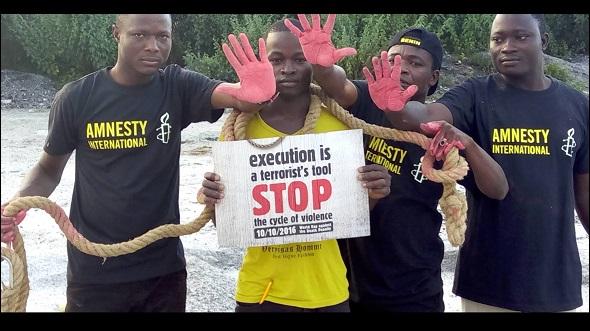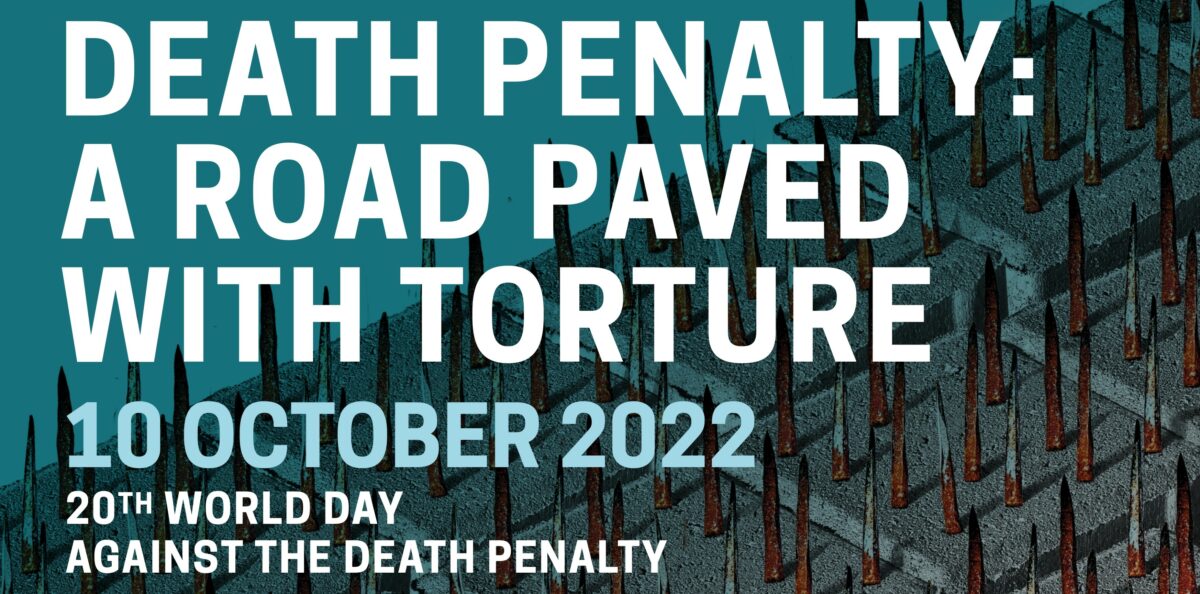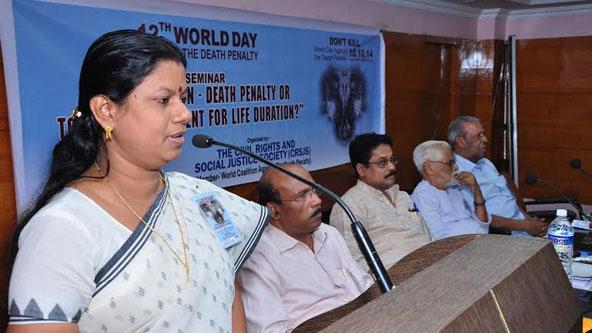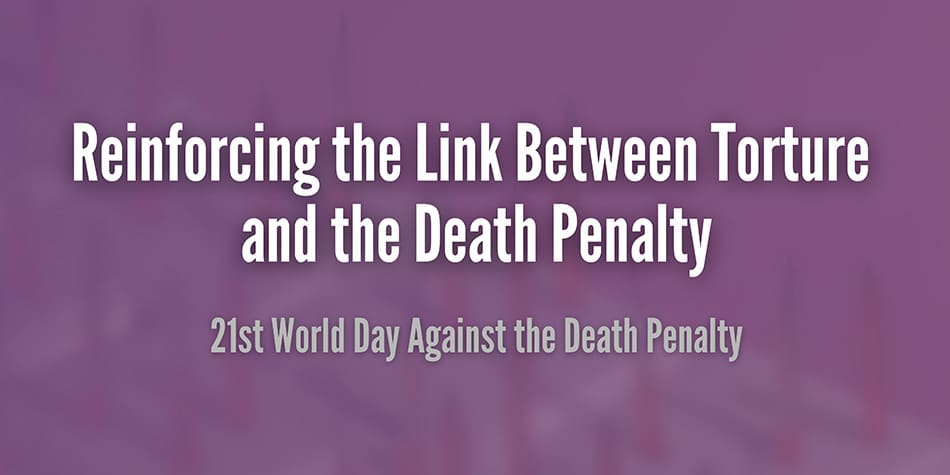
Africa raises its voice against the death penalty
World Day
The Working group on the death penalty and extrajudicial, summary and arbitrary executions in Africa of the African Commission on Human and Peoples’ Rights urged to the Member States that impose the death penalty for terrorism-related offences to adopt a moratorium.
In a statement, the Working group reported that, despite significant improvements towards abolition, there are still countries in the continent that impose the death penalty for terrorism. He also observed that "there is no convincing evidence" that the executions reduce the number of such crimes globally. Instead: “More people, particularly the youth, including girls are continuing to engage in such acts whilst erroneously believing that they are martyrs”.
In the Democratic Republic of Congo, the association Pax Christi Uvira organized a conference debate, followed by a comic poetry on the abolition of the death penalty. Lawyers, court advocates, judges, students and other civil society actors brought their ideas to the debate on the application of the death penalty for terrorism and addressed the situation of Congolese law and the problems for abolition.
Faustin Bwami, assistant at the Faculty of Law of the Catholic University of Bukavu, said there is no definition of terrorism at present that is unanimously shared worldwide. He provided statistics regarding the use of the death penalty for terrorism in the world, showing that executions have no deterrent effect on this particular issue. Bauwi added that the application of the death penalty is a violation of international human rights standards.
Olivier Lungwe trained lawyer and head of the Congolese youth program against the death penalty within Pax Christi Uvira, said that despite the de facto moratorium on executions observed since 2003, the country still maintains the capital punishment in the range of applicable sanctions. He regretted the Law of 31 December 2015, which revised and supplemented the ordinary criminal code by adding three offenses (war crime, crime against humanity and genocide) to those punished with death, while a trend towards abolition is has been traced for more than ten years.
Lungwe also explained that the Constitution of the DRC recognizes the sacredness of human life and provides no circumstance in which the right to life may be waived. He argued that his country can do more, by commuting death sentences into life imprisonment and improving prison conditions.
In Ghana, the Embassy of France and the local section of Amnesty International celebrated the World Day with a debate on the possible celebration of a referendum on the abolition of the death penalty in the country. In 2011, Ghana’s Constitutional Review Commission recommended to the President to abolish the death penalty and the government supported this reform, which should be approved by the people.
ACAT Benin and Amnesty International Benin organized a conference debate in Cotonou on the topic of the abolition of the death penalty and state security. The event was accompanied by the collection of signatures and pictures that will be send to the 14 death row inmates in the civil prison Missérété, with a copy to the Government and the National Assembly, to seek the commutation of their sentences.
According to the speakers, the insecurity experienced in Benin leads the supporters of the death penalty to address to mob justice because they do not trust the police nor justice. The director of Amnesty International Benin, Marcos Kikan, stressed the importance of celebrating a referendum on the penal code without delay in order to criminalize torture and extrajudicial executions both by public officials and by the people.
ACAT also organized a meeting in Liberia, with the participation of the chargée d’affaires of the European Union Emma Sundblad, who congratulated the country for the respect of the moratorium on the death penalty.
In Nigeria, the Legal Defence and Assistance Project (LEDAP) co-launched, along with N-Map, the social media campaign #Nodeathpenalty to stop the death penalty. This initiative focuses on the large number of innocent people who wrongfully sentenced to death. The campaign includes the video Innocent Sentenced to Die: Wrongful Incarceration is Nigeria’s Death Row, which tackles the case of Owodo Williams, who spent 17 years in prison despite his innocence.
Categories
Terrorism





